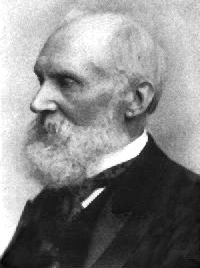Kelvin, William Thomson
Lord William Thomson Kelvin (1824-1907), a Scottish mathematician and physicist, helped lay the foundation for modern physics. Kelvin contributed significantly to the development of the Second Law of Thermodynamics, the absolute temperature scale, the dynamical theory of heat, the mathematical analysis of electricity and magnetism, including the basic ideas for the electromagnetic theory of light, the geophysical determination of the age of the Earth, and hydrodynamics. In a major mathematical treatise, On the Dynamical Theory of Heat (1851), Kelvin recognized Joule’s hypothesis about the interconvertability of heat and motion, then a controversial idea. The treatise also laid out Kelvin's version of the Second Law of Thermodynamics, which was a major step toward the unification of scientific theories. Kelvin argued that the key issue in the interpretation of the Second Law of Thermodynamics was the explanation of irreversible processes. He noted that if entropy always increased, the universe would eventually reach a state of uniform temperature and maximum entropy from which it would not be possible to extract any work. The absolute temperature scale is measured in degrees Kelvin in his honor.
Further Reading
Metric system temperature (Kelvin and degree Celsius) (U. S. Metric Association)
William Thomson (Lord Kelvin) - Biography (University of St. Andrews, Scotland, School of Mathematics and Statistics)
William Thomson: king of Victorian physics (PhysicsWeb)
